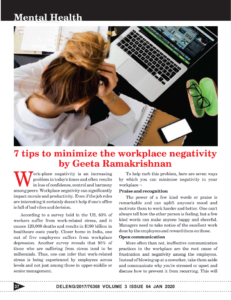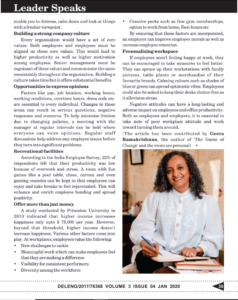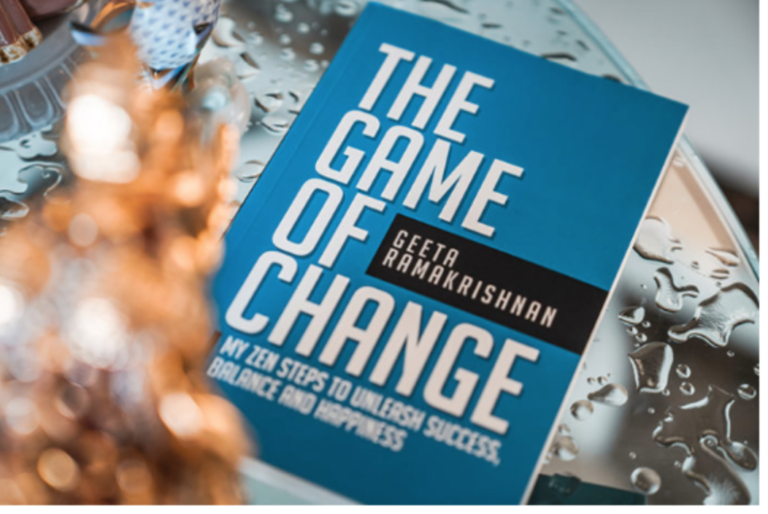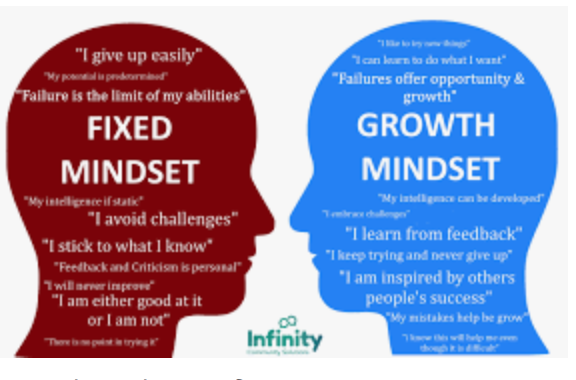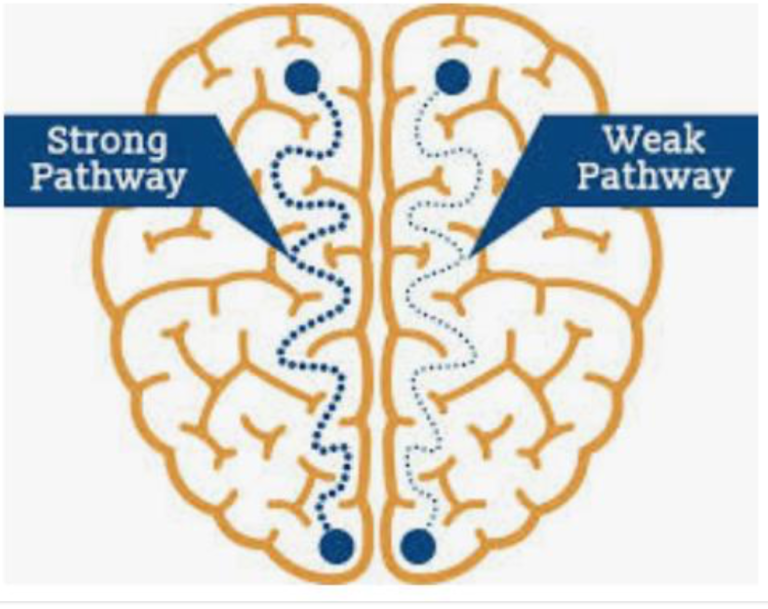My article from The Times of India, 16th Feb 2020
How I Start my Day
http://timesofindia.indiatimes.com/life-style/health-fitness/de-stress/how-i-start-my-day/articleshow/74130661.cmsIf you are a night owl, and that works for you, it’s great. There’s no reason to change. But for me, switching from being a night owl to an early riser has been godsend. It has helped me in so many ways that I’d never go back. I like to get up early in the morning and beat the sun and the birds to it. I ban all electronics, social media, email and phone calls for a set amount of time. Instead, I read a book or magazine, go for a walk, or simply stare out and daydream. Being an OCD planner, I spend 15 minutes every morning to prioritise and plan my day with breathing time in-between. I am mindful of the surprises that crop up. Being curious, introspecting and learning from mistakes helps me navigate the changes through the day with a positive attitude, and sometimes, these changes work better than what I had planned. Here are 4 habits for a fulfilling day:
* Start your day with a big smile, count your blessings.
* Once in a while, pause from your busy life and focus on your breathing.
* Charge your mobile phone in the room next to your bedroom.
Geeta Ramakrishnan
Ontological coach and author



